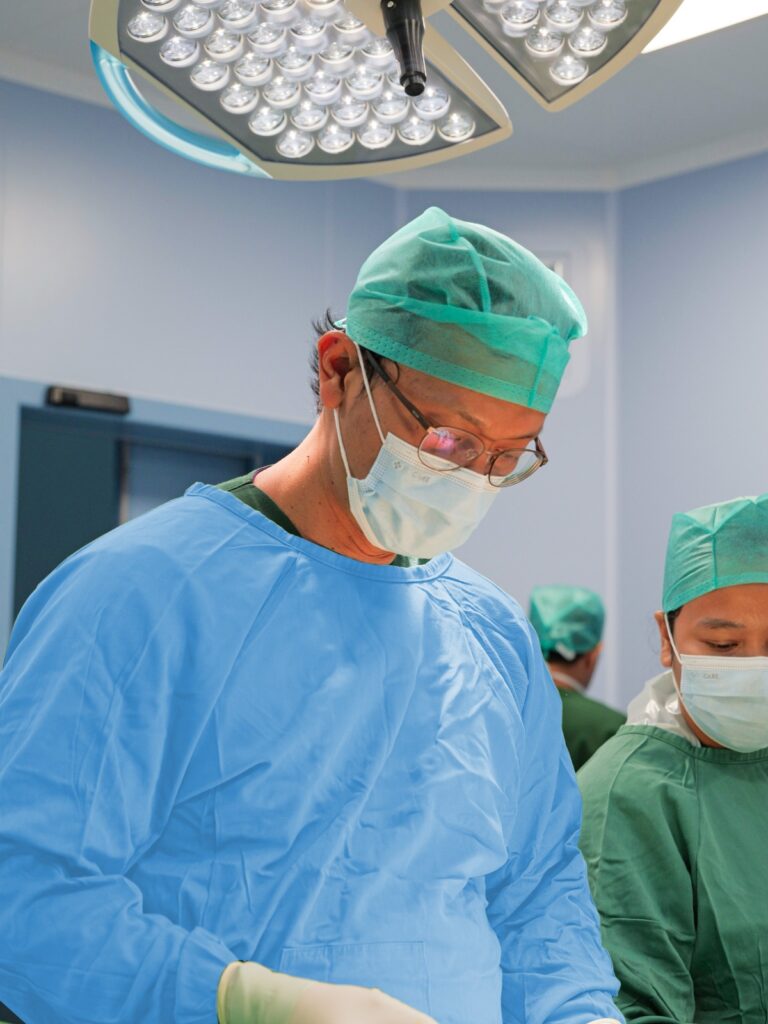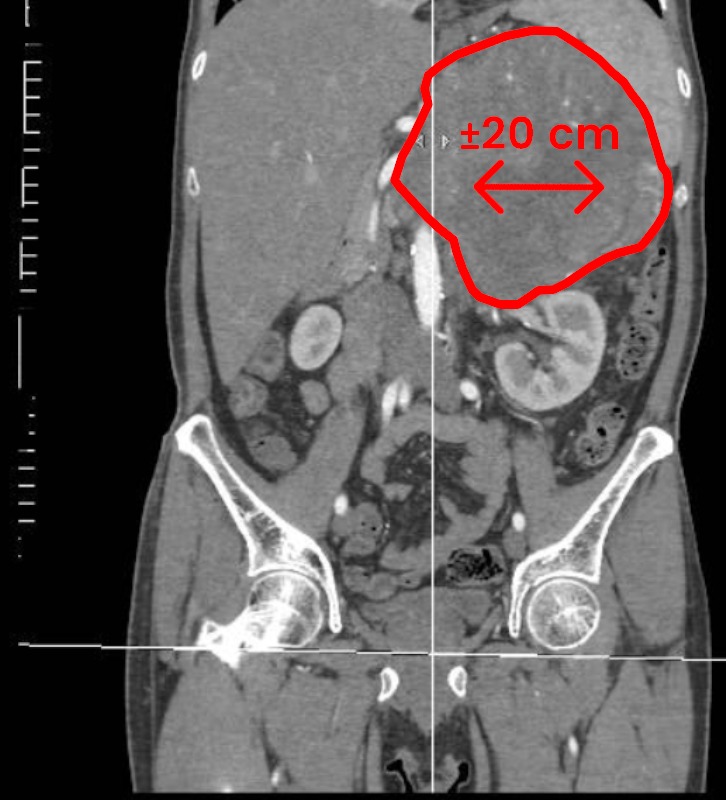Adrenal cancer occurs when cells in the adrenal glands mutate and grow uncontrollably, forming a tumor. Humans have two adrenal glands, each located above a kidney. These glands produce hormones that send signals to various organs, helping maintain overall body health. Adrenal cancer can affect one or both adrenal glands.
Contents
Types of Adrenal Cancer
There are three main types of adrenal cancer, each originating in a different part of the gland:
1. Adrenocortical Carcinoma (ACC)
This is the most common form of adrenal cancer, developing in the outer layer of the adrenal gland (the cortex). The adrenal cortex produces steroid hormones that regulate body functions such as metabolism, blood pressure, body shape, and hair growth. ACC is also known as adrenal cortex cancer.
2. Neuroblastoma
Neuroblastoma develops from nerve cells and can affect various parts of the body. However, about one-third of neuroblastoma cases originate in the adrenal medulla—the inner part of the gland. The medulla produces epinephrine and norepinephrine, hormones that control the sympathetic nervous system and regulate heart rate, blood pressure, and sweat. This type primarily affects infants and children under 10 years old.
3. Pheochromocytoma
This adrenal cancer arises in the medulla, typically from cells that produce adrenaline. Adrenaline plays a key role in regulating heart rate and blood pressure.
Understanding these types can support early detection and targeted treatment to improve outcomes.
Symptoms of Adrenal Cancer
Symptoms vary from person to person. Some experience pain when the tumor presses against nearby organs, while others may show signs due to excess hormone production.
Common symptoms may include:
- Abdominal pain
- Back pain
- Bloating or a feeling of fullness
- Muscle cramps
- Weakness
- Headaches
Hormone-related symptoms may include:
- Excess facial or body hair (hirsutism)
- Newly diagnosed high blood sugar (diabetes)
- High blood pressure
- Low potassium levels (hypokalemia)
- Unexplained weight loss or gain
- Rapid heartbeat
- Enlarged breasts
- Enlarged penis or clitoris
- Low libido
- Anxiety
- Panic attacks
In some cases, adrenal tumors cause no symptoms at all. That’s why regular medical check-ups are crucial for early detection.
Causes of Adrenal Cancer
The exact cause of most adrenal cancers remains unknown. However, it’s believed that mutations in DNA can cause adrenal gland cells to change, multiply uncontrollably, and become cancerous. What triggers these mutations is still unclear.
Some individuals inherit genetic mutations from their biological parents that increase the risk of adrenal cancer. Others may develop it due to exposure to cancer-causing substances. But in many cases, the mutations seem to occur without a clear reason.
Risk Factors for Adrenal Cancer
A risk factor increases the likelihood of developing a disease. Having one or more risk factors doesn’t guarantee you’ll get adrenal cancer, but it raises the possibility.
Environmental risk factors may include:
- Smoking
- Exposure to chemicals like asbestos or radon
- A history of abdominal radiation therapy
About 15% of adrenal tumor cases are associated with underlying genetic disorders, most commonly in children.
Genetic conditions linked to adrenal cancer include:
- Beckwith-Wiedemann syndrome
- Von Hippel-Lindau syndrome
- Li-Fraumeni syndrome
- Familial adenomatous polyposis (FAP)
- Neurofibromatosis type 1
- Multiple endocrine neoplasia (MEN)
- Carney complex
- Lynch syndrome
Recognizing these risk factors is vital for early screening and preventive care.
Diagnosing Adrenal Cancer
Doctors may suspect adrenal cancer based on symptoms such as excessive hair growth or unexplained weight changes. Sometimes, adrenal tumors are discovered incidentally during imaging tests like CT scans or MRIs performed for other reasons.
During an initial consultation, your doctor will:
- Conduct a physical exam
- Review your medical history
- Ask about your symptoms
- Evaluate any risk factors for adrenal cancer
- Discuss family history of cancer
If cancer is suspected, further tests may be ordered, including:
- Blood tests
- Urinalysis
- Imaging tests like CT scan or MRI
An accurate diagnosis is crucial for determining the most effective treatment plan.
Adrenal Cancer Staging
Cancer staging helps determine the size and spread of the tumor:
- Stage 1: Tumor is 5 cm or smaller and confined to the adrenal gland.
- Stage 2: Tumor is larger than 5 cm but still confined within the adrenal gland.
- Stage 3: Cancer has spread to nearby tissues or lymph nodes.
- Stage 4: Cancer has spread to distant organs such as the lungs or liver.
Because staging can be complex, it’s best to consult your medical team for a thorough explanation tailored to your case.
Adrenal Cancer Treatment Options
Adrenal cancer is potentially curable if detected early and confined to the adrenal gland. The primary curative treatment is surgical removal of the tumor (adrenalectomy).
If the cancer has spread beyond the gland, full recovery becomes less likely, but treatment can still manage symptoms and improve quality of life.
Treatment options include:
- Surgery
- Radiation therapy
- Chemotherapy
- Targeted medications depending on the patient’s condition
A personalized treatment plan will be tailored to each patient’s needs to achieve the best possible outcome.
Successful Removal of a ±20 cm Adrenal Tumor by the Urology Team at Mandaya Royal Hospital Puri
Recently, the urology team at Mandaya Royal Hospital Puri—comprising dr. Hendy Mirza, Sp.U (K) and dr. Maruto Harjanggi, BSc(Hons), Sp.U, FICS—successfully removed a massive adrenal tumor measuring approximately 20 cm.
dr. Hendy, a consultant urologist at the hospital, reported that the tumor had significantly displaced nearby organs—pushing the spleen upward, the kidney downward, and shifting the stomach and pancreas to the right side of the body.
Due to limited space and visibility, laparoscopic surgery was not feasible in this case. Instead, the team performed an open laparotomy, a surgical procedure involving a large abdominal incision to access and remove the tumor.



Laparotomy can be both diagnostic and therapeutic. In this instance, it served a curative purpose by enabling the complete removal of the adrenal tumor.
The surgery was led by dr. Hendy and supported by dr. Maruto, both highly experienced urologists specializing in complex urological procedures.
This successful case showcases Mandaya Royal Hospital Puri’s dedication to providing high-quality urological care. Backed by cutting-edge medical technology and a team of experienced specialists, the hospital continues to deliver advanced solutions for even the most challenging medical conditions.
To consult with the urology team at Mandaya Royal Hospital Puri, you can use the Chat via WhatsApp, Book Appointment, or download the Care Dokter app on Google Play or the App Store. These tools make it easier to schedule appointments, check queue numbers, and access comprehensive health information.



